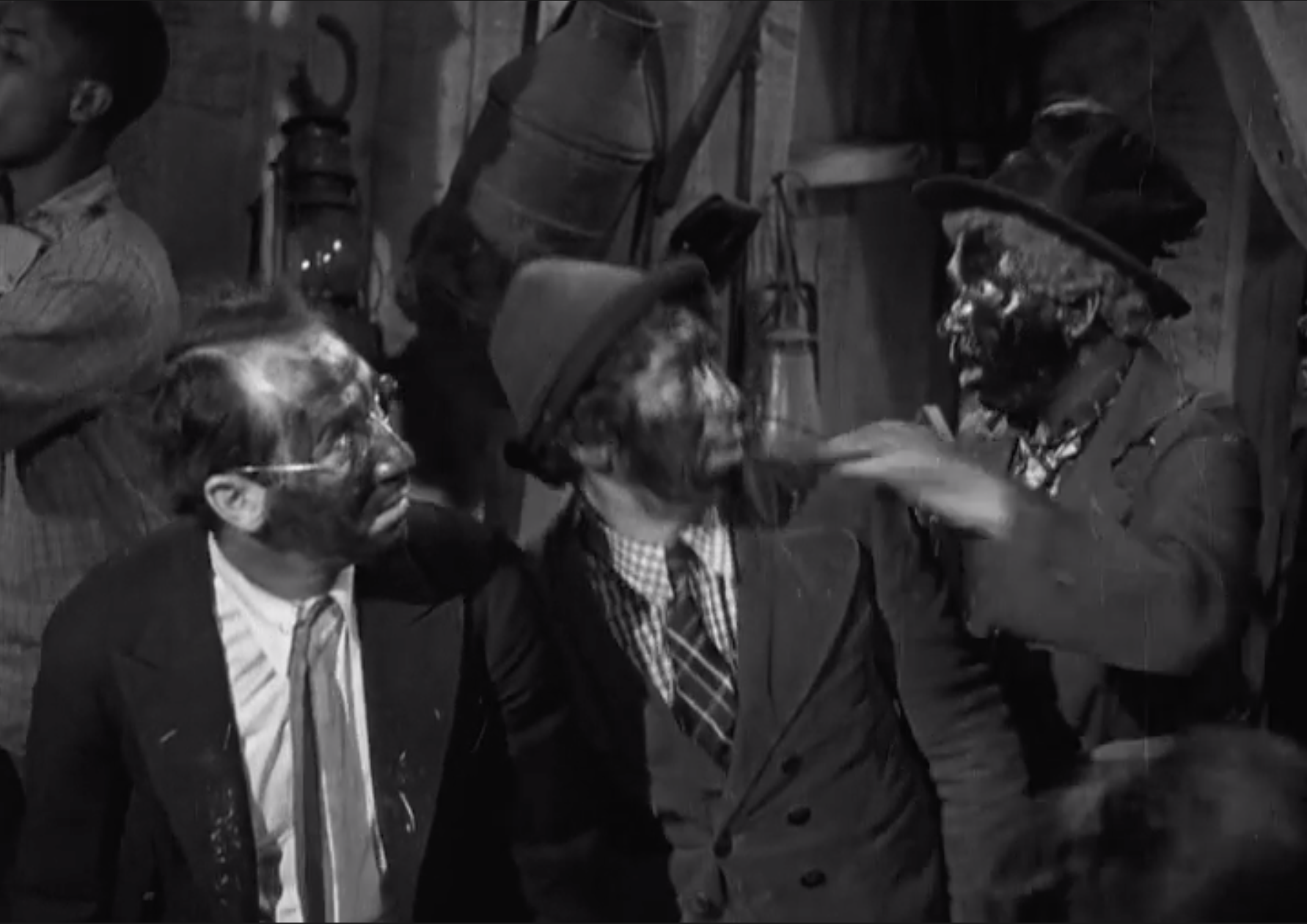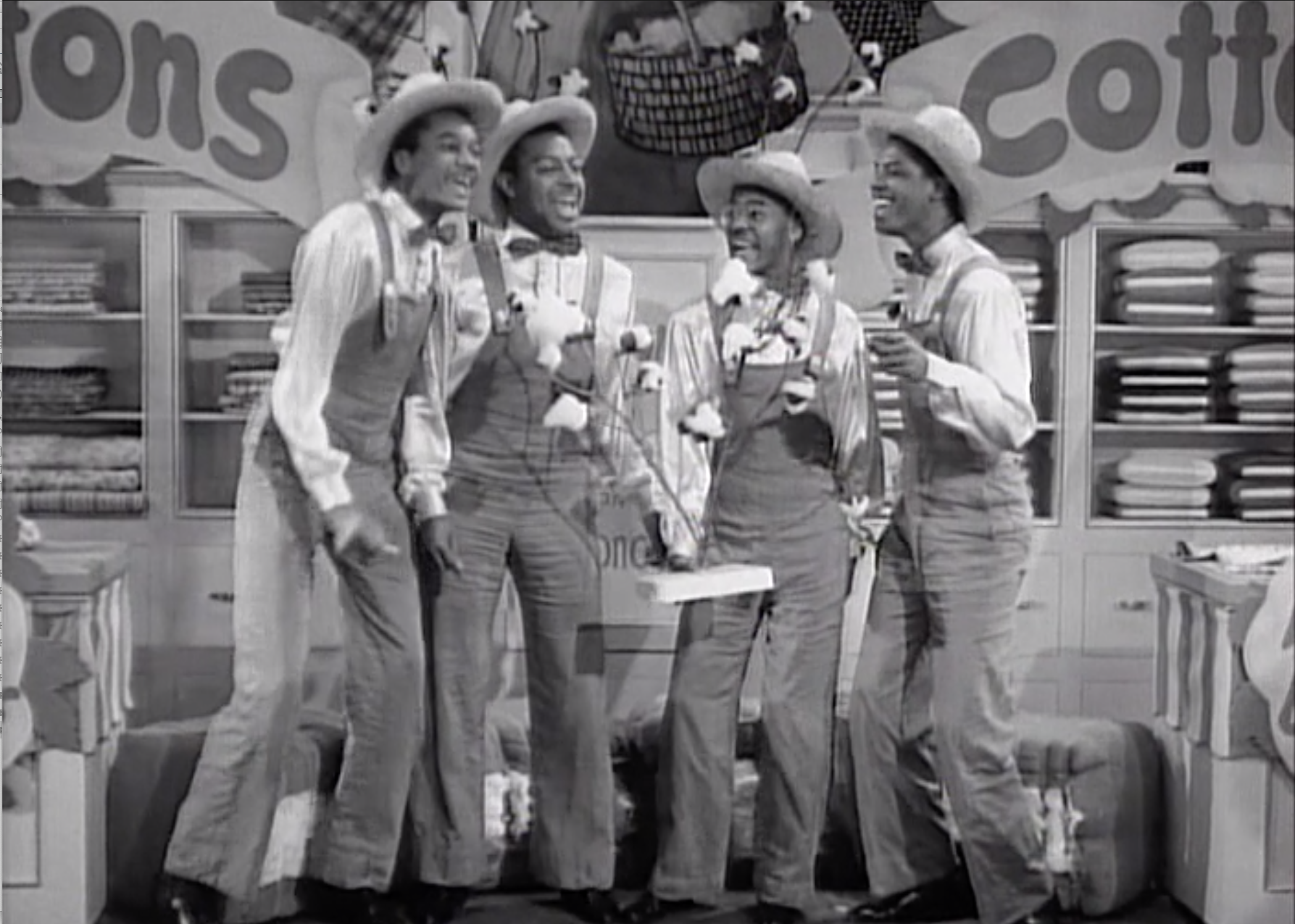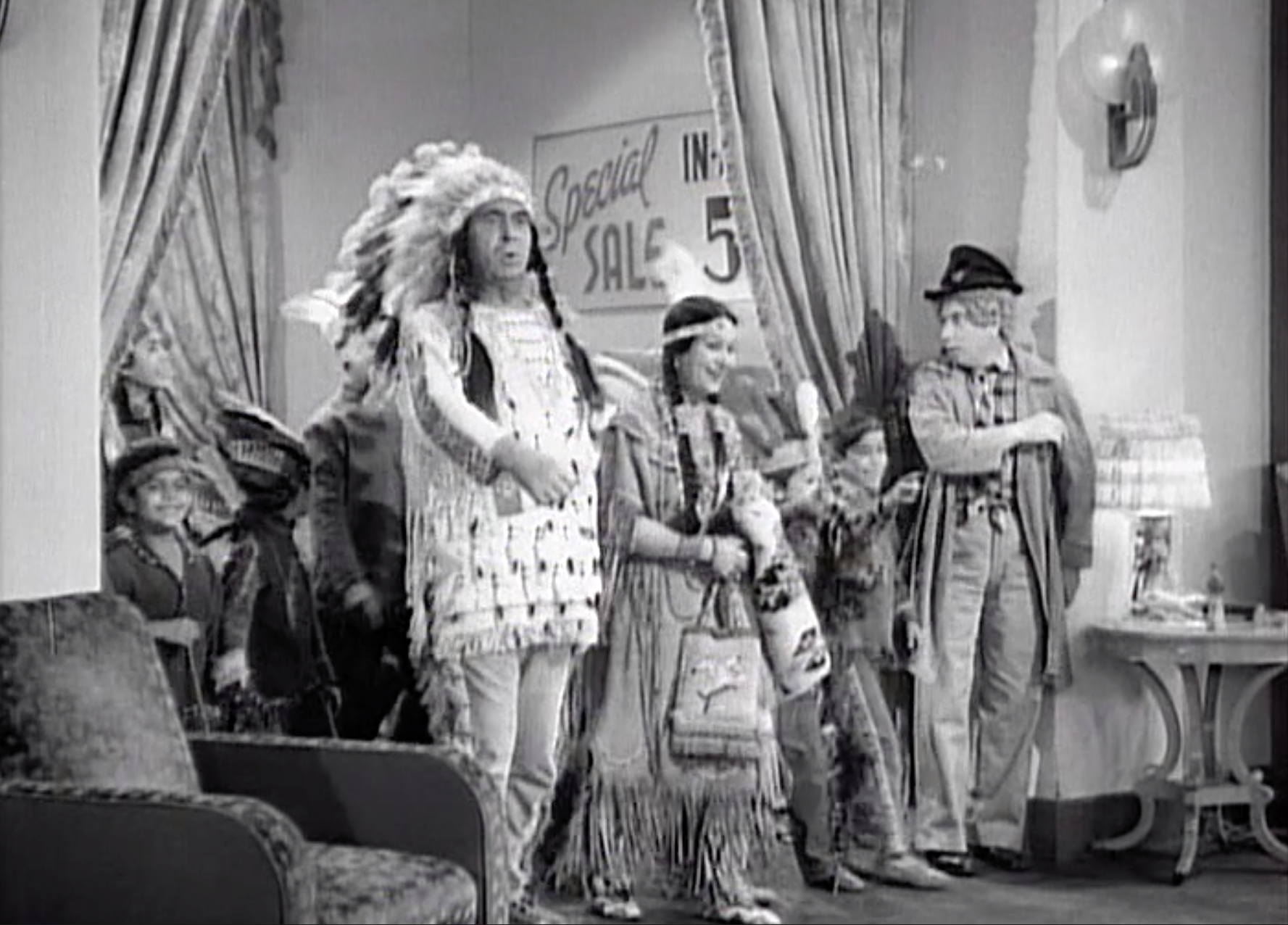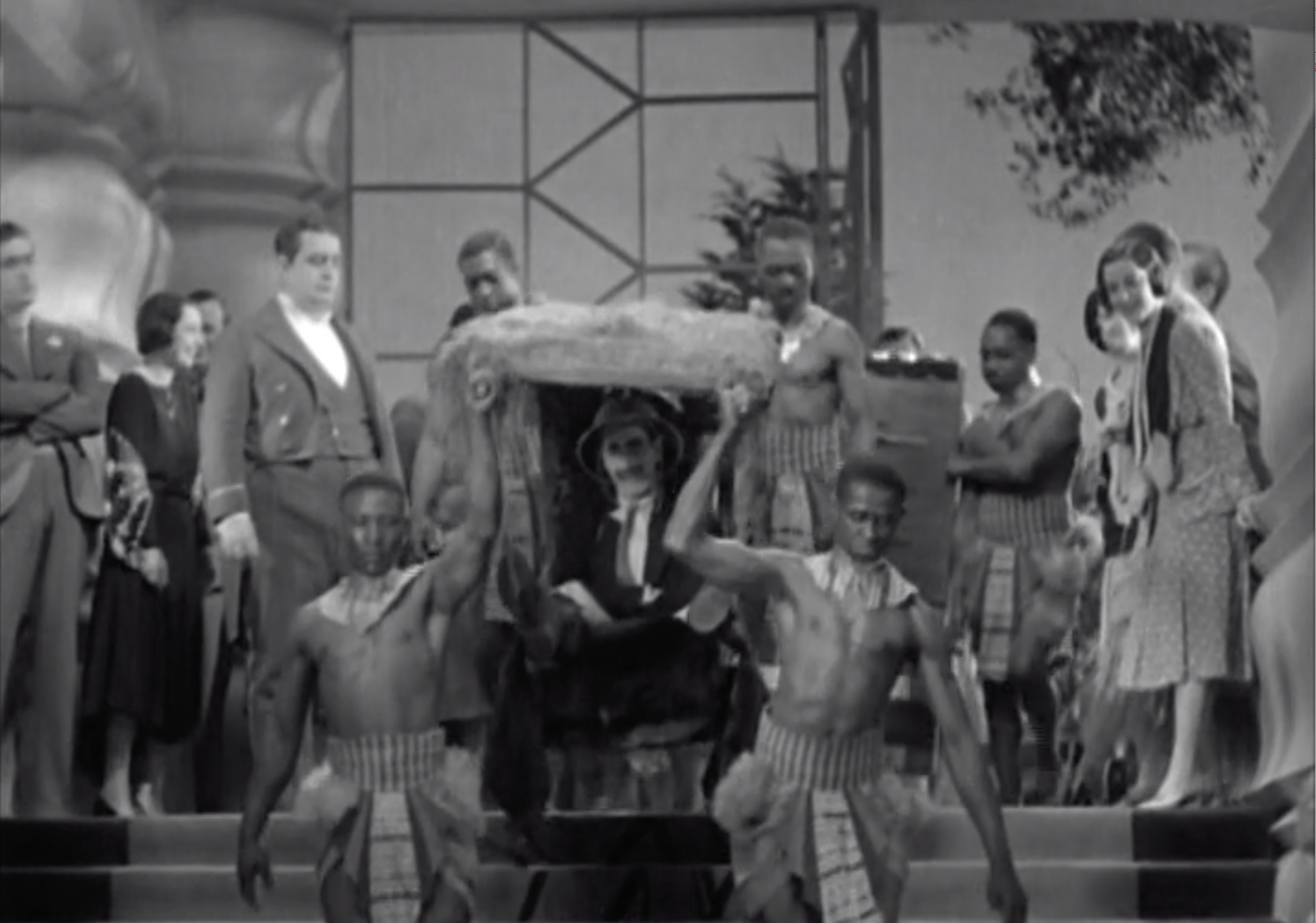With a title like that, you might think I’m going to talk about how Karl Marx’s economic and political theories apply to racial inequality.
Nope. I’m going to talk about racism in the Marx Brothers movies.
Recently, with much pandemic-induced free time on my hands, I re-watched all of the Marx Brothers films, in chronological order. They were as funny and clever as I remembered. What I’d forgotten (or more likely never noticed before) is the casual racism. I’ve blogged about casual racism in Harold Lloyd’s films. I’m facing the reality that many of the films of that general era, ones that have withstood the the test of time and have become classics, reflect the racist attitudes of those times.
Let’s take a look. Trigger warning: Explicit examples of racism in films you may remember fondly from your youth.
Well, maybe I am a little headstrong. But I come by it honestly. My father was a little headstrong. My mother was a little Armstrong. The Headstrongs married the Armstrongs, and that’s why darkies were born.
– Groucho Marx, Duck Soup (1933)
In A Day at the Races (1937), there’s an extended sequence that starts with Harpo Marx playing a tin flute. A group of Black children start dancing around him; they’re part of the families who live next to racetrack’s stables. The children sing “Who dat man?” They call him “Gabriel.” The group comes to the house where the adults are; those adults are somberly singing “Nobody Knows the Trouble I’ve Seen.”
All Harpo has to do is play his tin flute again, and the adults suddenly shift their mood in response to the white savior. They also sing “Who dat man?” and call Harpo “Gabriel.” They sing and dance joyfully and come to another shack where Black people are performing a musical jam. Once more, Harpo interrupts and plays his tin flute; the Black musicians stop and exclaim, “Who dat man? Why it’s Gabriel!”
Harpo leads them all to a nearby stable. The crowd exhorts Harpo to “Blow that horn!” Harpo plays his flute and the Black musicians play in response, even though it’s clear (at least to modern ears) that they are more talented than he is.
A Black singer, accompanied by the ensemble, starts singing to comfort the film’s romantic leads (since, of course, it’s the priority of a large crowd of talented Black performers to please a couple of White people). The sequence turns into a high-energy dance number, easily the best in the film (if not all the Marx Brothers films), with the frenzied enthusiasm of performers who have to work ten times as hard to get paid a tenth as much. The Lindy Dancers are amazing, and it’s worth enduring the racist overtones to see their work.
Eventually the Authority Figures come to chase the Marx Brothers. The Marx Brothers try to hide, and come up with what I assume was funny at the time:

Of course, none of the Black performers mind, even as the Black-face Mark Brothers take center stage to dance in front of them.
Sigh.
I’ll discuss just one more film, but one that contains two examples of racism: The Big Store (MGM, 1941).
In the middle of the “Sing While You Sale” musical sequence, Groucho picks up a cotton plant display and starts singing about inspecting a plantation. He tosses the plant to these performers:

These four young men are literally singing about the joys of picking cotton.
Later in the movie, there’s a “large-family confusion” sketch. An Italian couple comes to purchase a bed, accompanied by their 12 children. Some go missing. Then a Chinese couple comes in with their 6 children; they are (of course) all wearing coolie outfits. Then to add to the confusion:

It all plays out with the broad stereotypes that one might expect.
I said I’d discuss just one more film, so I won’t go into this:

What to make of it?
I’ll back down my high dudgeon just a bit to acknowledge that these moments take up a small portion of screen time in the overall body of the Marx Brothers’ films. Also, they’re a reflection of the times in which they were made; if I were to compare the casual racism I’ve detailed above to that found in other films of the period I might find that the Marx Brothers films contained relatively fewer racist overtones.
Still, how many racist jokes do you need to make to reinforce a negative image? Answer: one. I can’t help but think of the Black, Chinese, or Native Americans in the theater audience. They had to accept the prancing around of white performers mocking their experience in the larger culture. Perhaps, given the pervasive effects of racism, they thought no more about it than did the Marx Brothers.
The Marx Brothers themselves were Jewish, as were many of their writers, directors, and producers. Jews in the 30s and 40s were no strangers to prejudice and racism. That awareness did not transfer to awareness of racism against Black people. Such were the times then, and often now.
What might be done?
Warner Brothers dealt with a similar issue by putting an acknowledgement of racism in the DVD releases of the classic Looney Toons shorts. HBO put a disclaimer in front of Gone With the Wind.
I think it’s worth putting similar disclaimers in front of the relevant Marx Brothers films. I want people to see the Marx Brothers movies. As I said, they’re funny and clever, and we could all use more laughs during these times. They’re also an important part of the history of film and popular entertainment.
But we must also acknowledge their flaws, especially those flaws that were part of the passive rot of racism.
And what about Marx and sexism? I didn’t count the number of times Harpo and Groucho chased some random female across the movie screen. I’ll leave that analysis for someone else.
Interesting read on instances of racism in the Marx Brothers films. Do you have an opinion on racism of Laurel and Hardy films? I can remember one particular scene where the Boys put shoe polish on their faces to look like black people in order to escape from people who were after them.
I just watched Marx Brothers’ Monkey Business and was disappointed when Groucho said he got a ring from the nose of a savage.
On another subject, is there significant racism within the Jewish community of your country to fellow Jews? For instance, when comparing the experience of those from European heritage compared to Middle-eastern origins, for instance. I ask as you mentioned your religious /cultural heritage. Thanks.
I think that these are unfair to pick on the Marx brothers and the examples can all be explained in their context. The line about ‘darkies’ was a reference to a very popular hit in the equivalent of the charts at the time. So if the films were made in the 90s and Groucho said ‘and baby hit me one more time’ everyone would see it as a pop cultural reference. To the song not the opinion. The dance sequence I thought was not exploitation and agree the dancers and cast are excellent. Remember that work for such a large group of black dancers in Hollywood was not easy to come by. The actors are never mocked and you must know how harpo is always given a role of ‘other worldliness’ He is almost a magical entity that transcends the scene, the cast, the script. He was universally loved in and out of the films. So the children’s reaction to him was as it would have been in real life. (I’ve read a lot of biographies and the auto biographies of all the brothers). Finally the cotton picking is sadly a reflection on who picked the cotton. This was all well before civil rights movement took hold and as you say they play out many stereotypes for laughs later and that’s exactly what it gets. Not a political statement but a light hearted scene. So are you being overly critical?. Yes. Can we enjoy the films? Yes. Do we need a warning? No. Unless society is so poorly educated it can’t tell that the movies are about 100 years old now.
Regardless of all the points you made at the end of the day it was still racist no matter what year it was. Maybe society was bit more ignorant about racism at the time but it was still racist none the less, and it today’s society it should be labeled as such.
In Monkey Business, Groucho breaks the fourth wall (after some nonsense from Chico) and tells the audience “That’s my argument – restrict immigration.”
Sam Wood, the director of Night At The Opera and Day At The Races, was one of the few Hollywood conservatives. In a 1970s interview, Groucho said how racist the man was.
Marx didn’t say Darkies.. he says Donkeys. Headstrong + armstron = stubborn asses aka Donkeys
I just listened to this a couple of times (the wonders of modern technology!). It sounds like “darkies” to my ears, but I’m willing to concede that Groucho’s pronunciation may be ambiguous.
He did say “darkies.” It’s a reference to a popular song of the day, “That’s Why Darkies Were Born,” recorded by Kate Smith and Paul Robeson.
Thank you, Bernard. With that reference, I could look up the song: https://youtu.be/h_11Fb01Ujw?si=4u8T_LfhQvj1SMJL
The original song is anti-racist. However, that doesn’t come across in the joke as it is told in the movie.
I was shocked by the nearly century old racial attitudes in A Day at the Races, but it was also the Great Depression. I did not count, but that musical and dance number that was added but otherwise irrelevant to the film looked to me like one of its purposes was paychecks for about a hundred black actors.
Racism was everywhere in old movies, picking on these guys for their films is almost laughable. Note the Marxes championed those singers and dancers in A Day at the Races, wanting to give them a chance in that film.
Sometimes a cigar is just a cigar. I have been painfully aware of the racism seen in many old comedies. But I also I appreciate the context of the milieu and try not to watch an old movie with a modern perspective. As a jew, I laughed my head off when the album the “Yiddish are Coming” when it came out in the 60’s. Was Blazing Saddles racist? Or just irreverent? Making fun of ourselves because its funny and not cruel is an important distinction in my mind. When Henny Youngman said “Take my wife, please!” Was he insulting wives? Husbands? Or is joke sometimes just a joke? It would probably be a much better (or at least funnier) world if humans spent more time laughing at each other than killing each other.
Let’s not forget that Chico was a Jew playing an Italian. Do I care? No. Italians are great. Jews are great. My Italian grandfather loved the Marx Brothers.
Another reason I like the film besides my
fondness for the Marx Bros is the black
singer in the film is the great Ivie Anderson
who sang for Duke Ellington for many years
Very little Ivie Anderson to be found on the web
As a Native American and a fan of Eddie Cantor since my childhood, I often find myself holding conflicting opinions about old-time American culture when it comes to racist stereotypes.
The thing about the Black dance scene and attempted escape in A Day at the Races was that it seemed to be a send-up of the conventional Jolson- and Cantor-style blackface antics from earlier movies. The Marxes seemed to be saying “Wow, this blackface disguise schtick is so ridiculous — everybody laugh at this stupid trope!”
Try watching it again with that possibility in mind. It doesn’t make it right, but if the ridicule is pointed elsewhere than the obviously-sympathetically-depicted dancers, then maybe it’s not as bad as Cantor’s blackface (and redface) performances. Humor is complicated enit?